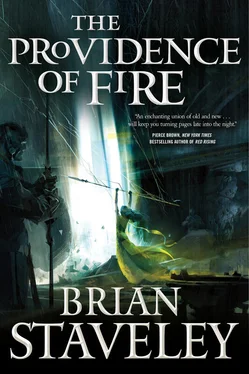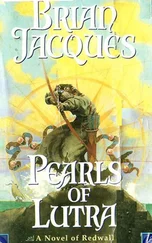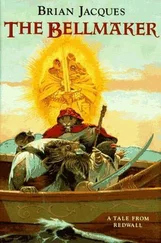Brian Staveley - The Providence of Fire
Здесь есть возможность читать онлайн «Brian Staveley - The Providence of Fire» весь текст электронной книги совершенно бесплатно (целиком полную версию без сокращений). В некоторых случаях можно слушать аудио, скачать через торрент в формате fb2 и присутствует краткое содержание. Год выпуска: 0101, ISBN: 0101, Издательство: Tom Doherty Associates, Жанр: Фэнтези, на английском языке. Описание произведения, (предисловие) а так же отзывы посетителей доступны на портале библиотеки ЛибКат.
- Название:The Providence of Fire
- Автор:
- Издательство:Tom Doherty Associates
- Жанр:
- Год:0101
- ISBN:9781466828445
- Рейтинг книги:4 / 5. Голосов: 1
-
Избранное:Добавить в избранное
- Отзывы:
-
Ваша оценка:
- 80
- 1
- 2
- 3
- 4
- 5
The Providence of Fire: краткое содержание, описание и аннотация
Предлагаем к чтению аннотацию, описание, краткое содержание или предисловие (зависит от того, что написал сам автор книги «The Providence of Fire»). Если вы не нашли необходимую информацию о книге — напишите в комментариях, мы постараемся отыскать её.
The Providence of Fire — читать онлайн бесплатно полную книгу (весь текст) целиком
Ниже представлен текст книги, разбитый по страницам. Система сохранения места последней прочитанной страницы, позволяет с удобством читать онлайн бесплатно книгу «The Providence of Fire», без необходимости каждый раз заново искать на чём Вы остановились. Поставьте закладку, и сможете в любой момент перейти на страницу, на которой закончили чтение.
Интервал:
Закладка:
“Why was he appointed your general in the wars against humanity?” Kaden asked. “Why not someone older? Someone with more experience?”
“Because he was the best,” Kiel replied simply. “Not the best fighter. There were twenty-two Csestriim more skilled than Tan’is with both naczal and sword, at least at the start of the wars. In fact, he wasn’t even the greatest pure strategist. Asherah and a handful of others could defeat him at the stones board. In battle, however-” Kiel’s eyes went suddenly far, as though he were studying some furious fight thousands and thousands of years past. “-none of my people shared his gift for command.
“A part of it was simply native genius. His mind moves more quickly, more unexpectedly than most. More than that, however, Tan’is understood your race in a way that most of us, especially the older Csestriim, did not. He studied you.…”
“You mean he tortured and killed us,” Kaden said, thinking back to the lightless corridors of the Dark Heart.
Kiel nodded. “That was a part of his study, although not the entirety of it. The war lasted several human generations, and Tan’is spent that entire time, whenever he wasn’t actually leading the armies, in study, learning your peculiar use of the language, your physiology and limitations, your emerging social structures, your weapons and weaknesses, and most of all, your minds. He spent decades trying to discover what had broken inside you, trying to understand whether it had anything to do with the new gods.”
“What do you mean, the new gods?” Triste asked. Unlike her mother, she wasn’t as jolted by the sudden revelation. After all, they’d been discussing the Csestriim for weeks. Triste had suffered in a Csestriim prison and passed through the Csestriim gates. Somehow, she knew their language. As Kiel spoke, she leaned forward on her cushion, eyes bright, sweat sheening her brow.
“You call them the young gods,” Kiel said. “The children of Meshkent and Ciena.”
“Heqet and Kaveraa,” Kaden said, reciting the names as he had heard them recited a thousand times before leaving for the Bone Mountains. “Eira and Maat; Orella and Orilon.”
“And Akalla,” Kiel added slowly. “And Korin.”
Kaden frowned. “No. There are only six of them. Six children of Pleasure and Pain.”
“That is because we killed the other two.”
For several heartbeats no one spoke. Morjeta had retreated behind the stillness of her painted face. Triste’s mouth hung open, as though in mid-gasp. Kaden realized that he, too, was leaning forward on his cushion, legs tense, breath lodged in his lungs. He exhaled slowly.
“You’re saying you killed two of the gods.”
“Tan’is killed them,” Kiel said. “He captured them after the battle of Nimir Point. Captured them, studied them, then killed them. I was there as historian. It is how we learned, learned conclusively, of the connection between our children-between you-and the new gods.”
Suddenly, Kaden was sitting once more in Scial Nin’s study, looking across the rough wooden desk at the abbot, listening to him explain about the kenta and the Shin, about the purpose of Kaden’s time among the monks. The abbot was dead, one of the hundreds of robed bodies left on the ledges to feed the ravens, and yet Kaden could still hear his patient explanation: It could have been the birth of the young gods that led to human emotion.
“They changed you somehow,” Kaden said quietly. “The young gods changed the Csestriim into … us.”
Kiel nodded. “It was only a suspicion at first. The facts fit. We had theory and evidence, but no proof. Then they came down. Here. They breathed their own immortal forms into human bodies, all to help you in your fight against my people.”
“And you killed them?” Triste demanded, utterly aghast.
“Only two,” Kiel said. If he was taken aback by the girl’s horror, he didn’t show it. “Like you, they were a threat. A foe.”
“Akalla,” Kaden said, tasting the strange syllables. “Korin.”
Kiel nodded. “Those were the names they took. I do not know their provenance.”
“And so they’re just … what? Gone?”
Kiel pursed his lips as though considering a thorny question of translation. “Perhaps not fully or forever. Gods are not Bedisa’s creation. Ananshael cannot unknit them. Even the young gods are … larger than us, more complete than this creation.” He shook his head. “Really, the language does not serve in discussing them.”
“So you didn’t kill them,” Kaden said, frustration fraying the fabric of his calm.
Kiel met his gaze for a moment, then held up a hand, studying it in the lamplight. “Tan’is destroyed the flesh while they were trapped inside, before they could be released. The gods may be eternal, without end or limit, but their touch on this world is not. That is what Tan’is killed-their hold on and influence over those born into their thrall.”
“But,” Kaden said, “if what we are, if the makeup of our minds and hearts comes from the touch of the young gods, there must have been an effect.…” He trailed off, trying to understand what such an effect might be, trying to hold the notion in his head.
“There was.”
The historian paused, so long this time that Kaden wondered if he had given up trying to explain.
“Imagine you are blind,” he said finally. “That you were born blind. That all your life you have lived in darkness among others like you. If you were suddenly and momentarily shown color, how would you explain it to your sightless race? What words would you use? What formulations of logic or reason? Analogy fails. Induction and deduction fail. This is the best I can do-
“Your ancestors, the first among you, felt differently about the world. Not just differently, but more. It was as though the stones and rivers, the sea and sky, the physical world and the transcendent notions that emanate from it were as crucial to those first, broken Csestriim children as their own human families, their own selves. They would die to avoid unnecessary destruction. They acted and spoke as though the earth itself were a part of them, woven into the fabric of their minds. This world of cities and roads-” He gestured to the walls of the chamber and beyond. “Your ancestors would not have recognized it. They would have loathed it.”
“And after you killed the gods?” Kaden asked, voice thin as the last smoke from a spent fire.
“You changed.
“The bodies of the gods died as all bodies die: a hole hacked in the flesh, a break in Bedisa’s perfection where the life drained out. I would have expected their deaths to be different from our own in some way. Greater or louder. They were gods, after all. But they were bound and drugged, both of them, and Tan’is killed them with a knife no longer than my hand.
“It took me a century to be sure of the effect, decades upon decades walking among your kind, posing as one of you, asking the same questions over and over:
“‘ What is this? What is this?’
“I always met with the same reply, ‘It is rock. It is water. It is air.’
“‘ And what do you feel about the rock and the water? What do you feel about the air?’
“‘ Nothing. Nothing. Nothing.’ ”
For a long time Kaden could not bring himself to speak. He struggled to conceive the magnitude of Kiel’s claim, of the loss. The Shin trained a lifetime to scrub out human emotion, and none ever succeeded, not completely, not perfectly. If Kiel was right, however, Ran il Tornja had managed just that, at least a portion of it, with two cuts of the knife. What would happen if everyone in the empire-everyone in the world- all at once lost hope and courage, fear and love? It was like looking down to find the once-solid ground nothing but an illusion. A dream.
Читать дальшеИнтервал:
Закладка:
Похожие книги на «The Providence of Fire»
Представляем Вашему вниманию похожие книги на «The Providence of Fire» списком для выбора. Мы отобрали схожую по названию и смыслу литературу в надежде предоставить читателям больше вариантов отыскать новые, интересные, ещё непрочитанные произведения.
Обсуждение, отзывы о книге «The Providence of Fire» и просто собственные мнения читателей. Оставьте ваши комментарии, напишите, что Вы думаете о произведении, его смысле или главных героях. Укажите что конкретно понравилось, а что нет, и почему Вы так считаете.












